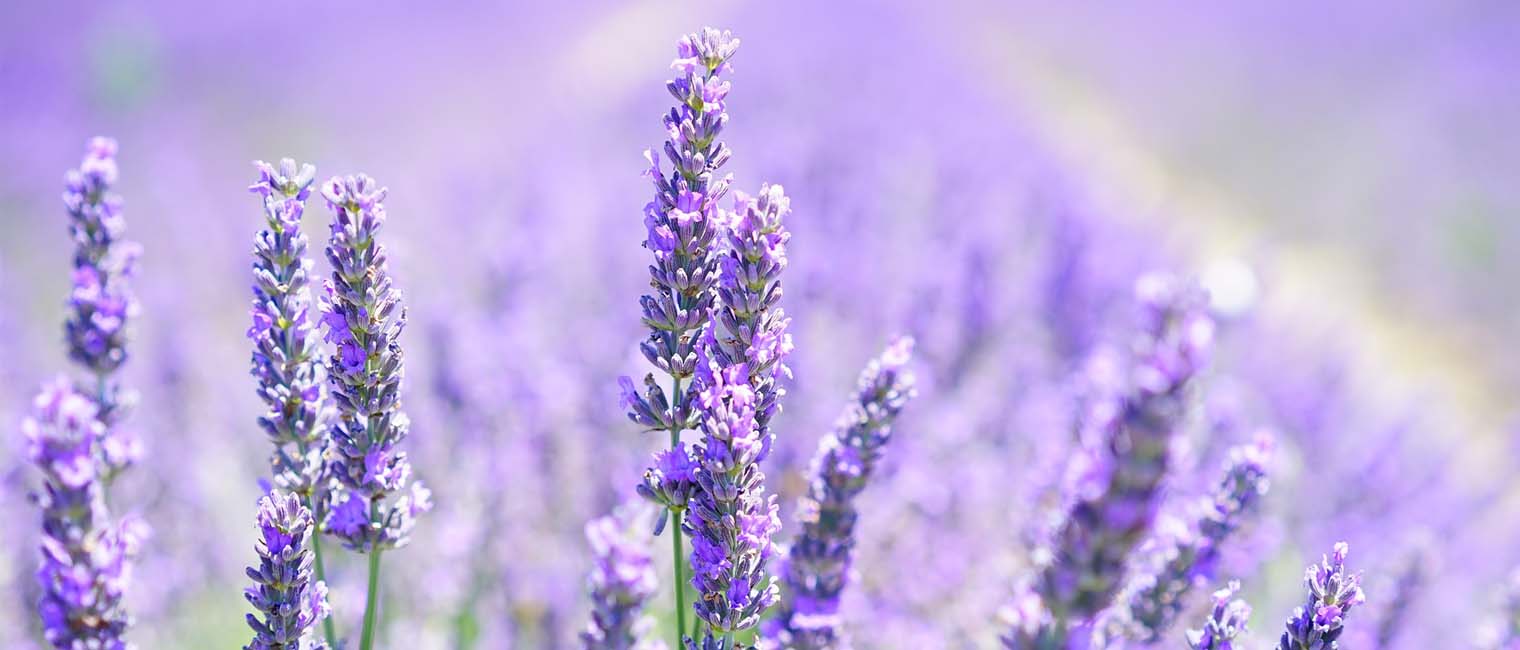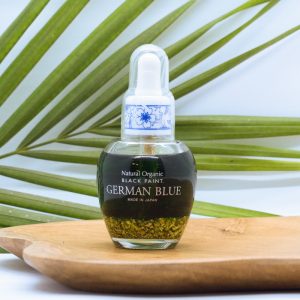Botanical oil is the beneficial natural oil that is derived from the flowers, seeds and stems of plants. These oils contain bioactive ingredients that have nourishing, healing and protective properties for the skin. They have a very fine molecular structure that allows for quick and easy absorption by the skin to repair, nourish and protect it.
Botanical oils are gaining popularity lately because they can be used in the long-term treatment of a number of skin conditions. They have wholesome benefits and do not come with the side effects that synthetic skin treatments do.
Consumers and skincare brands alike have taken a very welcoming approach to natural botanical ingredients in their products. If you’re intrigued by this shift, but not exactly sure why botanical ingredients are so highly-regarded, nor sure of which ingredients could address your skincare concerns, read on to find out more.
How can botanical oils help your skin?
Botanical oils provide the skin with a number of benefits which can be reaped for longer periods without the worry of side effects. Here are some of these benefits:
1. They contain fatty acids that deeply moisturize the skin
Botanical oils contain a number of fatty acids such as linolenic acid, linoleic acid, oleic acid, palmitic acid and stearic acid. These compounds keep the skin hydrated by keeping the moisture locked-in.
2. Rich in antioxidants, they repair and reverse skin damage
Botanical oils are rich in natural antioxidants such as vitamins (like vitamin A, C, E), polyphenols (like flavonoids and phenolic acids) and carotenoids. These compounds effectively neutralize free radicals and prevent skin damage caused by UV radiation exposure, acne, injury, etc.
3. They have anti-microbial and anti-inflammatory properties
Botanical oils protect the skin from the attack of harmful microorganisms and prevent infections from bacteria and fungi. They boost the skin’s immune system and strengthen the skin barrier to microbes. Botanical oils also reduce redness, swelling, rashes, itching and other types of inflammation. They effectively treat inflammations caused by acne, injury, sunburns and skin disorders like eczema and psoriasis.
4. They have quick absorption and penetrate deep into the layers of the skin
Botanical oils have a fine molecular structure which allows them to be quickly and easily absorbed by the skin. For this reason, when skin care products are used along with botanical oils, the effectiveness of the products increases because botanical oils aid their absorption and penetration.
5. They are effective in reducing wrinkles, fine lines and other signs of aging
Botanical oils boost the production of collagen and elastin which are responsible for the skin’s elasticity. This makes the skin taut and more flexible.
6. They can treat hyperpigmentation such as dark spots, melasma and scars
Botanical oils can lighten areas of the skin that have been darkened due to the overproduction of the skin pigment melanin. They decrease the rate of melanin synthesis and also increase melanin breakdown. Botanical oils are therefore effective as hyperpigmentation natural treatment.
10 highly nourishing botanical oils
Botanical oils are generally very beneficial but each botanical oil for skin has a different composition suited for addressing different concerns. Read on to learn about the 10 of the most highly regarded botanical oils, how each of them works and what are the specific benefits you can draw from them.
1. Argan oil – antioxidant and good for mature skin

You might be somewhat familiar with argan oil due to its inclusion in numerous hair care products. It is most commonly found in shampoos and treatment masks. Additionally, this oil, extracted from the kernels of the argan tree (Argania spinosa), is effective as a skincare ingredient:
- Increases skin elasticity, which makes it a valuable component of anti-aging skincare treatments or for mature skin.
- Helps to maintain hydration levels in the skin, and when used as part of skincare formulations, it’s been shown to help other beneficial ingredients penetrate the skin more effectively.
- Non-comedogenic, which means that it will not clog pores.
As a result, these properties make it an excellent ingredient to look out for in skincare products.
2. Evening primrose oil – firming and calming

Evening primrose oil (EPO) is pressed from the mature seeds of the Oenothera biennis plant. It is a plant oil rich in gamma-linoleic acid (GLA), a fatty acid that is not commonly found in plants. However, it is highly valuable for the beneficial effects that it imparts to the skin.
Its high concentration of GLA helps to improve several aspects of skin quality, including:
- Increasing the firmness and elasticity of the skin.
- Reduces the appearance of redness, which would be appealing if uneven skin tone is one of your dermatological concerns.
As part of skincare formulations contain water, EPO also provides the following benefits:
- Strengthening the skin’s barriers
- Reducing trans-epidermal water loss
- Help maintain a well-hydrated skin.
Therefore, even when it isn’t the star ingredient, EPO is a valuable inclusion in skincare products and routines alike.
3. Tea tree oil – antibacterial and antimicrobial

There is a myriad of applications for tea tree, or Melaleuca alternifolia oil. You may have resorted to dabbing undiluted tea tree oil on your skin before as a homemade treatment for blemishes. Perhaps you’ve used tea tree products to treat dandruff issues or mild fungal infections.
Tea tree oil comes from the leaves of the tree. When used in skin care, it provides excellent benefits due to its documented strong antiseptic and antibacterial properties.
It is especially beneficial if you have been experiencing issues with mild to moderate acne. Seek out products that contain this botanical oil. Studies showed that tea tree oil significantly reduces blemishes on the skin in patients with acne concerns.
4. Eucalyptus oil – anti-bacterial and barrier-strengthening

Eucalyptus oil is useful as a nasal decongestant and muscle relaxant. Extracted from the leaves of the Eucalyptus globulus tree, it possesses great skincare benefits. Similar to tea tree oil, eucalyptus oil has antibacterial and antimicrobial properties. This makes it beneficial for similar reasons as those mentioned before!
In addition to this, studies done on eucalyptus extracts have revealed therapeutic properties. This includes the ability to enhance moisture retention in the skin, as well as to strengthen its barrier functions.
This oil also performs in a similar manner to argan oil. It also enhances the penetration of some topical skincare ingredients. The use of eucalyptus oil in combination with other ingredients could help enhance the overall effectiveness of your skincare products!
5. Sweet almond oil – emollient and good for evening out skin tone
You get sweet almond oil from the very same sort of almond that we enjoy as food (Prunus amygdalus dulcis). Though, don’t confuse it with bitter almond oil, a cherry-scented essential oil distilled from apricot kernels (Prunus armeniaca). You can also find it in most fragrance applications. Sweet almond oil, although odourless, has a long history of use in cosmetic and skincare practices.
Functions of sweet almond oil include:
- As a treatment for conditions related to dry skin. This includes psoriasis and eczema, by ancient Chinese as well as Greco-Persian medicine.
- It is high in oleic acid, a fatty acid with emollient, or moisturizing properties.
- Help to improve skin tone and complexion
- As a treatment that can reduce the appearance of scarring.
6. Grapeseed oil – good for sensitive skins and calming

As its name suggests, grapeseed oil is obtained via extraction from the seeds of grapes (Vitis vinifera). This botanical oil is high in linoleic acid. It helps retain skin moisture, soothes skin by alleviating inflammation, and reduces acne when applied topically.
Due to its fatty acid composition, grapeseed oil is also lightweight. It sinks in quickly when applied, and will not leave an annoyingly greasy finish while imparting benefits to your skin.
7. Rosehip oil – antioxidant and good for mature skin

Rosehip oil comes from the cold-pressed seeds of the dog rose plant (Rosa canina). It is an excellent skin care oil for a number of reasons:
- Anti-inflammatory, high in antioxidant activity and, like grapeseed oil, rosehip oil is rich in skin-nourishing linoleic acid.
- Contains a high concentration of Vitamin C. This makes it a potent topical ingredient in the treatment of photoaging, aging caused by exposure to UV rays. It also helps relieve hyperpigmentation.
Rosehip oil benefits individuals of any age (Refer to this article for women age 25 – 29). However, its properties make it particularly worthy of note to those with concerns related to mature skin.
8. Lavender oil – anti-blemish and calming

This is an aromatic essential oil, obtained from the distillation of the buds of the English lavender (Lavandula angustifolia). Notably, you may be familiar with lavender, given its ubiquitous use in massage therapy products and home fragrance. As a skin care oil, lavender can help to fight blemishes and photoaging.
The well-known, familiar fragrance of this oil also actually does have documented relaxing effects on brain activity. It also has effects on emotional arousal. Hence, this makes lavender oil and its products a great candidate for a spot in a night-time skincare routine. It will put you in the right state of mind for a good night’s rest.
9. Lemongrass oil – antimicrobial and natural insect repellent!

You can find this oil certain Asian cuisines such as those of the Thai and Peranakan cultures. If you enjoy the refreshingly tart and lemon-like flavour of lemongrass, then you might be happy to know this:
The essential oil is not only just as aromatic as the plant (Cymbopogon flexuosus) from which it is distilled. It can also have several positive effects as a skincare oil as well.
Studies have found that the oil of the lemongrass plant is antimicrobial. For this reason, its non-irritant properties aid well in the treatment of inflamed skin. It is also good to note that it works great as an insect repellent, too!
10. German chamomile oil – antioxidant, calming and anti-allergenic

Have a look through the numerous studies involving the properties of German chamomile (Matricaria recutita). Many get the impression that it’s some sort of a wonder plant. In fact, it might well be – chamomile and its extracts can treat a broad range of health-related concerns! This includes severe carpal tunnel syndrome, skin lesions, and insomnia. It appears to be just as potent when used as a skincare ingredient.
German chamomile oil is extracted from the heads of chamomile flowers. It is high in antioxidant activity and demonstrates anti-allergenic, anti-inflammatory properties. Because of this, it has the potential to accelerate wound healing as well! Similarly, chamomile plays nicely with other skincare ingredients as an effective penetration enhancer in skincare products. A majority of its incredible qualities stem from its high proportion of a compound known as chamazulene. This is a potent antioxidant which has the added bonus of lending the oil an appealing natural azure blue colour.
As a result, German chamomile shapes up to be a veritable skincare all-rounder!
In summary
Maybe you now have a specific oil or two in mind to address a particular skin concern. Or perhaps you’re tempted to take the plunge and try most, maybe even all, of the plant oils mentioned here.
In that case, BLACK PAINT’s German Blue facial serum is a good introduction. BLACK PAINT’s oil serum features German chamomile oil as its star ingredient. Also, it contains a blend of mostly certified organic plant-based ingredients. The serum contains all ten of the botanical oils mentioned above and more. These allow some of the different ingredients in the serum to work in combination with each other.
Suitable for both dry and mature skin, benefits of German Blue include:
- Aids in relieving skin inflammation & allergies
- Supports skin healing
- Has anti-aging & skin smoothing effects
Overall, there is an incredible variety of botanical oils out there with amazing properties to offer to your skincare routine.
Now is as good a time as any to dive right in and explore! Which botanical oils works best for you and your skin?
References
https://www.ncbi.nlm.nih.gov/pubmed/25673976
https://www.ncbi.nlm.nih.gov/pubmed/26327867
https://www.ncbi.nlm.nih.gov/pubmed/27063848
https://www.ncbi.nlm.nih.gov/pubmed/18492193
https://www.ncbi.nlm.nih.gov/pubmed/10442214
https://www.ncbi.nlm.nih.gov/pubmed/27000386
https://www.ncbi.nlm.nih.gov/pubmed/21696405
https://www.ncbi.nlm.nih.gov/pubmed/28322977
https://www.ncbi.nlm.nih.gov/pubmed/20860796
https://www.ncbi.nlm.nih.gov/pubmed/16395658 .
https://www.ncbi.nlm.nih.gov/pubmed/20129403
http://onlinelibrary.wiley.com/doi/10.1046/j.1365-2230.1998.00315.x/abstract;jsessionid=3A3839FFEE6830B29A484ADD806031A9.f04t03https://www.ncbi.nlm.nih.gov/pmc/articles/PMC3673383/
https://www.ncbi.nlm.nih.gov/pubmed/21389613
https://www.ncbi.nlm.nih.gov/pubmed/18384191
https://www.ncbi.nlm.nih.gov/pubmed/22612017
http://roberttisserand.com/2011/08/lavender-oil-skin-savior-or-skin-irritant/
http://www.sciencedirect.com/science/article/pii/S221400851730010X
https://www.ncbi.nlm.nih.gov/pubmed/27562470
https://www.ncbi.nlm.nih.gov/pubmed/25673986
https://www.ncbi.nlm.nih.gov/pubmed/26573447
https://www.ncbi.nlm.nih.gov/pubmed/21617262
https://www.ncbi.nlm.nih.gov/pubmed/26483209
https://www.ncbi.nlm.nih.gov/pubmed/25666499
https://www.ncbi.nlm.nih.gov/pubmed/24980540
https://www.ncbi.nlm.nih.gov/pubmed/27027912




 German Blue
German Blue



